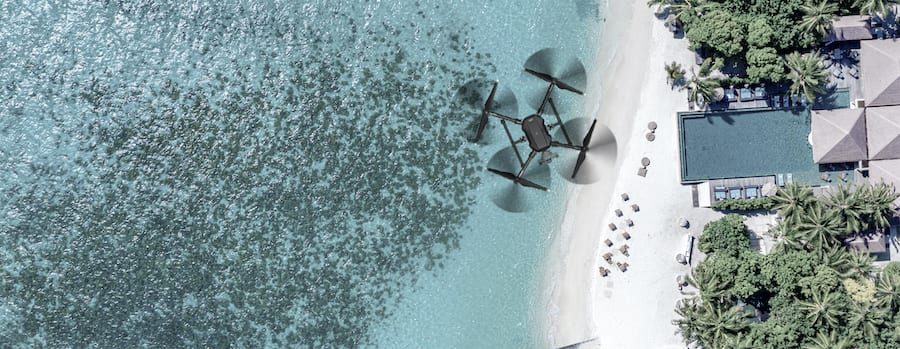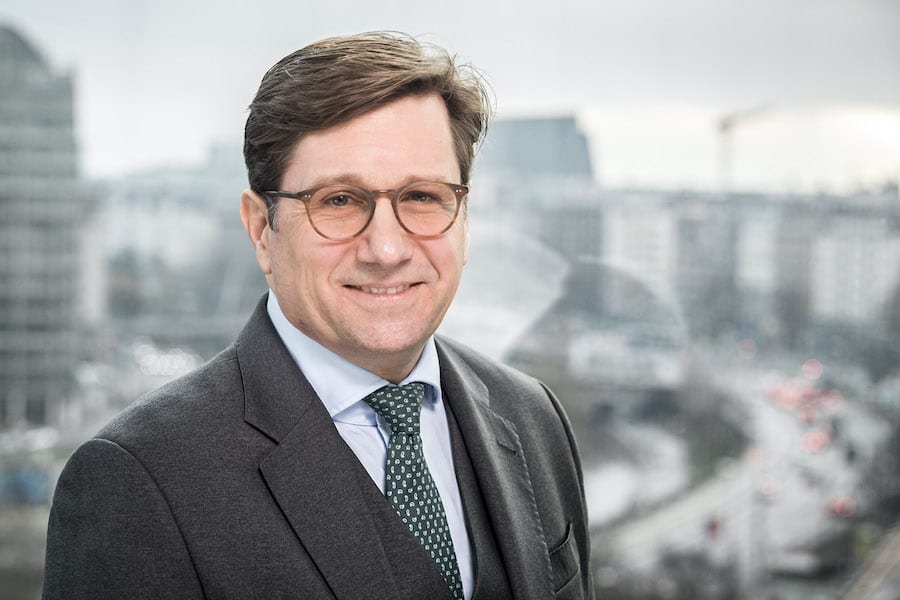When governments announced lockdowns across the globe, HNWIs left their properties to wait out confinement in second homes, sometimes fleeing to other countries.
Criminals sprung into action, but security experts like Matthias Fitzthum, were ready. The Managing Director of Bespoke Home and Yacht Security spoke to Monaco Life about the impact of the crisis on security and the biggest threats facing HNWIs today.
How did Covid-19 change the world of security?
Across the globe, we saw High Net Worth Individuals (HNWIs) leaving their properties in a hurry before the lockdown was imposed. Alarm systems were initiated on these properties, but we had many clients contacting us concerned that if there was a burglary and the alarm was sounded, there was no guarantee that the police would arrive quick enough, or even at all. There are art collections in these buildings that are unimaginable. You cannot bring back a unique Picasso, for example, if it is stolen.
So, we are protecting close to 100 properties, all over Europe, with armed guards until their owners return and everything returns to normal.
Art security is obviously a major concern for HNWIs. What other things can be done to protect precious art works?
We are mounting little electrical devices on the back of art works, it is a location-based service that provides a lot of information. We can track any change in position, right down to a tenth of a millimetre. We can also measure changes in temperature and humidity. If a painting is stored in the room of a property, for example, and someone opens a door, the temperature and humidity changes immediately.
Since the lockdown, have you seen an increase in the number of robberies and attempted robberies?
Definitely, and the increase is in the double-digits. We can see this in our digital surveillance. For example, we are able to screen telephone data from mobile phones. If we detect that one or two GSM mobile phones are staying in front of a property for 20 minutes or longer, over a period of weeks, then we know that they are spying on the building and that they are preparing something
We are automatically alerted to this fact and then we can determine who owns these telephones. If we see it is not a contract phone but a throwaway phone, then we start counter-spying.
We have also seen a lot of attempts by drones. It is very easy to fly a drone into gardens and small windows when no one is there, to look into open windows and check out which paintings are where, what problems there are in access, etc. But that’s not surprising, it is a lockdown, and the police have other problems to deal with rather than chasing burglars.
How are criminals evolving in their sophistication?
They are evolving every day. We can see tactics from the civil war in Syria that are popping up in European main cities. What we see is a very simple picture across all clients – nobody thinks about the airspace. They are protecting their properties with electrical fences, cameras and bullet proof glass, etc, but all of these things are absolutely useless in attacks by drones.
Covid-19 didn’t make it better, just the opposite.
What are the main security risks on superyachts?
Superyachts are meant to be very discreet and private places for HNWIs. Realistically, I would say superyachts are the least private and secret places in the world. If the right people are approaching the boat with a drone – it can be up to 1,000 metres away and no one on the yacht will even see it – those people can enter the IT network, the artificial GSM network on the yacht, and they can read whatever goes in and out of this vessel. Now imagine there is an owner or CEO of a stock listed company onboard, and they have to make decisions or receive information during their stay. Imagine if that information is stolen and that person knows what is going to happen on the stock market before the rest of the world? They can make a lot of money.
When did drones become a major threat?
The world of drones started about 12 years ago, for instance in the Syrian civil war, when they were buying very cheap remote-controlled aircraft designed for kids and adults as toys, and they were mounting bombs underneath the drones with cameras. With a budget of about 2,000€ they could fly a precision guided bomb into or behind enemy lines.
But we are not talking about these improvised drones anymore. Since last year, the company Kalashnikov, most commonly known for producing the AK47 gun, has been selling a drone that can carry up to three kilograms of explosives, chemical weapons, or precision guided bombs. Even worse, this drone is not flying by remote control. It can fly completely autonomously at a range of seven kilometres from its target, so it is completely out of sight.
Even in sight, drones have become a “normal” part of surveillance by authorities and governments during the Covid-19 lockdown. What impact has this had?
People no longer react with fear when they see a drone approaching because it has become a normal part of life. The legal situation is very clear in Europe. You are allowed to control your lower air space, so you are allowed to detect drones coming into your lower air space. What is not allowed for private persons is to down a drone, or to hijack the drone and send it back in order to receive the coordinates of the pilot. That’s only allowed for armies and authorities. Of course, there are existing jammers which allow you to down a drone or send it back to the pilot. But we are not allowed to sell those. Superyachts may be able to buy them because they are operating in international waters and they can do what they want to.
How does drone detection work?
As soon as a drone is flying into the lower airspace we play, for example, a particular song very loud inside and outside of the property or superyacht. At this point, everybody knows that something is approaching. We don’t know what it is, who is flying it, and what its purpose is, so let’s get inside and hide. That’s all we can do. But that is already our major goal.
How do drones pose a physical threat?
Many HNWIs have boats, private jets and heliports. We have seen technical tests where drones were dropped into turbines of aircrafts. Most of these tests led to the turbine being damaged, not enough for the aircraft to drop from the sky but it would be a critical situation. Meanwhile, a drone is a nightmare for any helicopter, because if a drone is flown into the aircraft and hits the right points, then the helicopter might immediately fall out of the sky.
HNWIs normally have one or more heliports in their property and on their superyachts. One of the world’s top superyacht shipyards now includes anti-drone protection for the heliports on all of their yachts, because any collision between a drone and a flying helicopter is potentially lethal.
What qualifies you as a specialist in security?
I started my career in the special forces unit of the military learning how to kidnap people, rekidnap people, how to get into buildings and create ambushes, etc. About five years ago we brought a company that produces exclusive safes and panic rooms, where I was CEO for four years. But I stepped out because there is a fact that I couldn’t neglect any more. We know that more than 80% of criminal activity – burglary, kidnapping, ambushes – is based on insider information or is an inside job. That means that the staff within the property or superyacht of a HNWI is potentially the highest risk, as well as all the technicians, suppliers, etc, that are working for a HNWI, family office or top executive.
So, my business idea was very simple. I take a huge knife and I cut this flow of information into pieces, and I position my company right in the middle. That means I am the single point of contact to the HNWI, family office or top executive. In the briefings I receive what is required in terms of security, and I create the contracts with the suppliers. I take care of the security in all properties, within all aircrafts, superyachts, and cars, to the point where there are no points of risk left.
I work with partners that are either global market leaders or are simply the best of the best. I prefer to work with partners with an ex-military background, because we know a lot more than rebels who have taken their knowledge from Hollywood movies.
I don’t have employees, because every employee has a week spot, which is usually money.
We are so paranoid we don’t even state the real name of the client anywhere on our digital servers. There is only source for the match between the client name and the code name, and that is me.
Can you give us an example?
We have a client who is a very well-known Swiss family office, whose driver was hired without a background check. Three and a half weeks after he started his job, he tried to kidnap the youngest daughter of the family and ransom her for money. Within 48 hours we caught him and handed him over to the police.
You have to know who is working for you. A driver is such a high risk for clients – they can listen to phone calls in the car, they are transporting the principal, his wife and kids; maybe they are even transporting very important information or documents. The same goes for superyachts. If I am a professional sailor and I walk through any harbour in the world looking for a job, I guarantee you after five yachts I will have found a job. I also guarantee you no-one is doing a background check on me.
The staff is a very critical part in terms of risk assessment for clients. The intelligence side is as important as the drone side in protection, from my point of view. The most important thing we do for clients is advise them on the dangerous situation in which they are living in, because most actually don’t realise the risks they face.
Protecting HNWIs

